WHY WE INVESTThe dust was flying and the sounds of hammers and saws were heard throughout the building as electricians climbed ladders to install wiring throughout the building. Guests donned safety helmets to walk the space as it slowly moved from a 1980s Christian education building to a state-of-the-art warm space to host individuals who are experiencing homelessness. The original walls were torn down to make way for a new floor plan. The bustle of boxes moving, elevator doors opening, and furniture being assembled was very present in February 2024. It was go time; the space cleaned and ready to move in. It was exciting and scary as we were creating something new with many unknowns. The technology in the building is advanced, with high resolution cameras throughout and doors that the staff are able to unlock with their cell phones remotely. Our guests have rooms with bunk beds, new cookware, new ovens and microwaves. The laundry room is outfitted with shelving and new washer and dryers. So why was this investment made? Each year Lebanon County Christian Ministries’ Fresh Start Emergency Shelter & Resource Center provides safe housing for over 130 people. This space provides a single location where people can do life together, engage with staff in case management, and sleep in a safe and secure space. This reduces movement, time pressure, and provides space for children to rest when ill, and much more. The space could be summed up in one sentence: “It provides a sense of community.” WHY WE PARTNERMerriam-Webster defines partnerships as “a relationship resembling a legal partnership and usually involving close cooperation between parties having specified and joint rights and responsibilities.” In March, LCCM launched our partnership with Wellspan Health and their ARCHES program. ARCHES supports individuals who are ready for discharge from the hospital, but may have barriers to entry in the community. This might include no housing, unstable housing, or housing that is not appropriate for healing. LCCM is providing two beds for Wellspan and Wellspan is providing financial support to LCCM. This financial support is a huge help in ensuring the FRESH Start program exists long-term. Partnership is a biblical principle. We have a partnership with God and people. People are social beings, designed for community. An absolute win for our shelter guests, our ARCHES guests, and our team is to watch the community grow inside of our walls, which we believe will extend into the next phase of housing for our guests. These partnerships are healthy relationships with boundaries and structure, specifically designed to encourage wellness in both physical and emotional health.
0 Comments
FRESH Start Emergency Shelter & Resource Center now under one roof in renovated, permanent home3/6/2024 It started in September 2019 with a vision: to provide long-term sustainability for LCCM’s FRESH Start Emergency Shelter & Resource Center. In February, that vision became reality when our guests slept overnight at our newly renovated, permanent shelter space at the Chestnut Street Community Center. The road to this destination was long, but God’s unseen hand guided LCCM every step of the way. the beginning FRESH Start began as HOPES Shelter in 2012 as a collaborative effort between LCCM and Jubilee Ministries to address a gap in services provided in Lebanon County to help families affected by homelessness. A few years into the collaboration, Jubilee wanted to go in a different direction to focus fully on their mission to serve those affected by incarceration, at which point the LCCM board of directors voted to take on full responsibility of the HOPES program. A capital campaign was initiated to complete structure modifications to the LCCM facility at the South Seventh Street location to provide a daytime resource center. With this transition, HOPES was rebranded to FRESH Start, and moved to the South Seventh Street location. FRESH Start housed guests overnight in what is often referred to as a cold shelter model. Guests would sleep on a mat on the floor at a hosting church. Every two weeks, the location would change. This is a model of housing often used for winter sheltering or other emergency scenarios. We have had many dedicated churches over the last decade that provided many hours of critical service. This heavy lifting for years, however, involved rapid time pressure difficulties for everyone, staff, volunteers, and guests alike. the disruption In March 2020, guests were housed in a hotel during the pandemic. This was a difficult time for many reasons. At LCCM, we struggled with case management and connections with our guests. What was thought to be a quick couple of weeks turned into a 22-month stay in the hotel setting. We experienced our highest average number of guests per night in the history of FRESH Start. But during the pandemic, LCCM did not stop dreaming or planning. Through strategic planning, it was apparent a single site location for the shelter was needed. Not long after that a donor came forward asking about our biggest need. Although we couldn’t offer a strategy at this point, we just shared our hearts. Within weeks this donor presented us with a $200,000 restricted donation toward a shelter. In ways only God can provide, we found ourselves not only with this large donation, but with a partner seeking to work collaboratively on space to operate a single site shelter. Laurie and Dave Funk provided a vision for the community space, focused on bringing people together and creating community. In February of 2022, a partnership with the Chestnut Street Community Center was launched to host our guests overnight, providing a single location just a couple of blocks from LCCM. After completing due diligence and searching for potential sites, an agreement to engage in a long-term relationship with the Chestnut Street Community Center was ratified by the board. The Result In May 2023 construction began on the community center building of the Chestnut Street Community Center and in January 2024, the renovations were complete. The donor funds restricted for this space were utilized to create a warm and welcoming space for our guests. On Monday, Feb. 13, we officially slept overnight – IN BEDS, not mats! – at our new FRESH Start space. We already seeing the impact that physical space can have on people’s lives. The open layout of the space has encouraged connection and community. The living room area has created space for conversation, and having permanent sleeping quarters creates a opportunity for kids to be put to bed early, which affords parents the opportunity to rest for a bit. We count our blessings every day and thank this community for the support to care for those who need us during their most difficult times. shelter fast facts
A few years ago, April DeVoy lost everything – her job, home, car and her freedom. “My life was in ruins,” she told a crowd of 250 people at the Lebanon County Christian Ministries annual Benefit Dinner & Silent Auction in November. “To top it all off, I was freshly sober and trying to prepare for the biggest moment in my life: becoming a mother.” She knew she wanted better for herself and her family, so she set out to do just that through recovery programs, therapy and other support services. 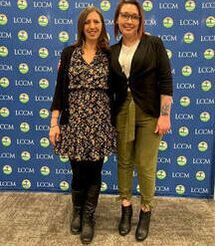 April DeVoy, right, one of the first upLIFT members, poses with her upLIFT coach, Andrea Gillhoolley, at the Lebanon County Christian Ministries Benefit Dinner & Silent Auction. April DeVoy, right, one of the first upLIFT members, poses with her upLIFT coach, Andrea Gillhoolley, at the Lebanon County Christian Ministries Benefit Dinner & Silent Auction. In January 2023 her life was getting better, and she was ready to begin tackling goals. Having enrolled in college to study psychology, she was determined to better herself, the life she shares with her fiancé Matt and daughter Marley, and to help others. Around this time, her sister introduced her to new program at Lebanon County Christian Ministries called upLIFT. upLIFT is a long-term, intensive program aimed at building up the wellbeing, confidence, economic strength and overall life stability of its enrolled members. upLIFT is a partner of More Than Food Consulting, which provides the framework, training, and data collection for this program and others across the country. Together with a coach, upLIFT members create a personalized, strengths-based plan of action while also addressing the obstacles that stand in the way of a flourishing life. The goal of coaching over the course of this nine-month program is to help upLIFT members get “unstuck,” using motivational interviewing and the principles of life coaching to reduce life stressors, and build up a support team so they can move forward in areas such as employment, financial wellbeing and health. Members can also shop for groceries privately every other week in the upLIFT pantry and have access to other qualifying LCCM services. A big part of the program is warm referrals to community partners that can help upLIFT members reach their goals and adopt a new system of habits to set them moving in a new direction. Five people enrolled in the upLIFT program in early 2023 and results are promising: all members by the six-month mark identified as food secure, and financial wellbeing, perceived social support and self-sufficiency scores increased during this time. In July, LCCM brought on a full-time coach, Lesvi Vazquez, who has been with LCCM for over seven years in a variety of roles. In total, nine people have enrolled so far in the program.
April set out to obtain employment in her desired field of addiction recovery as a certified recovery specialist. After 10 weeks of training, she was ready to take the exams. To alleviate any potential financial strain on their household finances, LCCM used funding from its “breaking barriers” fund to cover the cost of the exam fee. Now a two-income household, April and Matt wanted financial education to learn more about budgeting, paying off debt, and saving for their wedding and retirement. They began working with financial coach, Ryan Bowman of Bowman Financial Solutions, to begin tracking income and expenses, setting a budget, listing their debts in order from smallest to largest, and began paying off several of those debts. They were able to set a budget for their wedding and work it into their monthly budget. The money saved from shopping in the upLIFT pantry over 9 months provided wiggle room in their monthly budget so they could put their money toward other bills and savings. April made significant progress in her health goals as well. “I had a hard time making appointments and hadn’t been to regular doctors or dental appointments in several years,” she said. “As a person with post-traumatic stress disorder (PTSD), avoidance is a big part of the symptoms I struggle with.” Her coach helped her make phone calls to set up appointments. “It may sound silly, but it was a big help to me. I’ve had several dentist appointments, doctors’ appointments, and even started working out again thanks to her support and encouragement.” Overall, April shared that the support, encouragement and accountability her coach provided her helped keep her going when she was struggling and running into obstacles. “Working with my (coach) improved my self-esteem, my support network, and financial security,” she said. “Life today is so much different than when I first started the upLIFT program…I am so grateful for the gifts this program has given us to better our lives that will help us to continue to succeed and improve our future.” A massive housing needs report released this fall highlights significant affordability and accessibility issues affecting Lebanon County, as well as possible solutions for county planners to consider as they work on building a comprehensive plan. Adequate and affordable housing is often at the heart of the many issues facing guests who seek services at Lebanon County Christian Ministries. LCCM seeks to alleviate the financial burden of people’s basic necessities through its many programs, including the Market on 7th, a charitable food pantry guests can utilize to shop for their own groceries every 14 days, the free noon meal program, utility payment assistance, a clothing bank, the FRESH Start Emergency Shelter & Resource Center, and its newest program, upLIFT, designed to walk long-term with guests as they set goals to increase their personal sustainability and economic strength. As we enter this holiday season, we want to share the reality of the issues deeply affecting our community. Be sure to read “What poverty looks like in Lebanon County, Part 1, food insecurity. Here are 10 highlights about housing and poverty from the Housing Needs Assessment conducted by Bowen National Research: Read the report in its entirety
1. The bottom line: Lebanon County in dire need of affordable rentals and for-sale housingIt appears that Lebanon County is most in need of affordable rental (less than $1,000 per month) and for-sale housing (less than $150,000) oriented toward families (two or more bedrooms) with incomes up to $60,000 annually. In addition, it appears that there is a considerable need for studio and one-bedroom housing, as well as senior care housing, primarily for seniors with low incomes/assets. Limited overall availability and rent affordability appear to be the most common housing issues experienced in Lebanon County, and as a result, the repair and revitalization of existing housing appears to be the top housing construction priority among respondents. While the cost of labor, materials, and infrastructure were the most commonly cited barriers to residential development; the collaboration of public and private sectors, home repair assistance, and public education related to housing were considered to be the top priorities by stakeholder respondents. Respondents indicated that landlord/tenant conflict resolution for renters and home repair assistance for owners should also be given priority. Among the special needs populations in the area, permanent supportive housing for persons with a disability, transitional housing for unaccompanied youth, and emergency shelters for the homeless were rated as the top needs. Overall, the consensus of respondents is that the aforementioned housing issues cause residents of the area to live in substandard and unaffordable housing, and the renovation and repurposing of existing buildings should be a focus for the county. 2. housing growth rate in lebanon county outpaces stateThe overall housing growth rate within the county outpaced the state of Pennsylvania since 2010, adding to the demand for housing in the foreseeable future. Between 2010 and 2022, the number of households within Lebanon County increased by 4,164 (8%). This increase in households for Lebanon County is significantly greater than the increase (4.3%) within the state of Pennsylvania during this time period. In 2022, there is an estimated total of 56,422 households in Lebanon County. Between 2022 and 2027, the number of households in Lebanon County is projected to increase by an additional 580 households, or 1%, at which time the estimated total households in Lebanon County will be 57,002. This 1% increase in households for Lebanon County over the next five years is approximately five times the projected growth rate (0.2%) in households for the state during this time period. While this household growth likely indicates a notable increase in demand for housing in Lebanon County over the next five years, it should be noted that household growth alone does not dictate the total housing needs of a market. Other factors, such as households living in substandard or cost-burdened housing, commuting patterns, pent-up demand, availability of existing housing, and product in the development pipeline also affect housing needs. 3. affordable rental units needed to keep pace with low-income households over next 5 yearsAlthough moderate and higher-income households will drive overall demand for housing, the large base of low-income renters and the general limited availability of housing product will contribute to the ongoing need for affordable housing alternatives. The largest increase (25%) of renter households by income in Lebanon County over the next five years is projected among those earning between $60,000 and $99,999, while those earning $100,000 or more are projected to increase by 21.9%. While this represents a significant shift toward higher earning renter households in Lebanon County, nearly one-third (31.8%) of renter households in Lebanon County will continue to earn less than $30,000 annually. Currently, nearly two-fifths (37.6%) of renter households within Lebanon County earn less than $30,000 annually. 4. Over 15,000 people in Lebanon County live in poverty, including nearly one in six childrenOver 15,000 people in Lebanon County live in poverty, including nearly one in six children, indicating that affordable family housing for households earning below $68,000 should be a housing priority for the area. Among the submarkets in Lebanon County, the overall poverty rate is highest within Lebanon city, (24.9%) which totals more than 6,800 people affected by poverty. This submarket comprises 45.2% of the Lebanon County population that is affected by poverty. Individuals less than 18 years of age in the Lebanon city submarket have a poverty rate of 37.9% and are the most disproportionately affected cohort in the county. 5. Significant shortage of rentals available for lower income householdsThere is limited available inventory among multifamily rentals and significant pent-up demand for housing serving lower income renter households. Multi-family apartment properties and other rental housing are both operating at exceedingly high occupancy levels – 99.6% - with very limited availability rates (0.6%). This is among the highest that Patrick Bowen, of Bowen National Research, has seen among the 30 communities he has surveyed in his career, according to a September Lebtown article. Typically, healthy, well-balanced markets have rental housing occupancy rates generally between 94% and 96%. Furthermore, Lebanon County has an overall housing gap of 6,503 units for rental and a for-sale product at a variety of affordability levels. It is projected that Lebanon County has a five-year rental housing gap of 2,620 units and a for-sale housing gap of 3,883 units. While there are housing gaps among all affordability levels of both rental and for-sale product, the rental housing gap is distributed most heavily among the lower priced product (rents of $1,065 or less) and the for-sale housing gap is primarily for product priced at $340,801 or higher. 6. 92% of government-subsidized projects maintain wait listsOver 92% of the government-subsidized projects maintain wait lists. In total, these wait lists among government-subsidized projects in Lebanon County exceed 5,000 households and have a waiting period of up to 60 months. The large share of properties with significant wait lists and the length or duration of such lists indicates a very strong level of pent-up demand for rentals, particularly among the Tax Credit and government-subsidized projects. 7. 14,500 households are paying more than 30% of income toward rent or mortgageMore than 2,000 occupied housing units in the county are considered substandard, while over 14,500 households are housing cost-burdened (or paying more than 30% of their income toward rent or mortgage). The lack of available multifamily rental housing serving low-income households is likely contributing to the large number of renters living in substandard and/or cost burdened housing situations in the county. 8. There appears to be a mismatch between area wages and affordable housing alternatives While the employment base is growing and the unemployment rate is declining, there seems to be a mismatch between area wages and affordable housing alternatives in the market. As a significant share of the labor force is contained within health care, manufacturing, and retail trade, many workers in the area have typical wages generally ranging between $30,000 and $35,000 annually, likely contributing to the need for lower to mid-priced housing product in the county. Most good to fair quality for-sale housing alternatives are not reasonably affordable to these lower wage-earning workers. Based on this analysis, there appears to be a mismatch between area wages and affordable housing alternatives in the market. 9. Lebanon County housing inventory considered extremely low, indicates limited available supplyOverall, there is a relatively limited amount of for-sale housing available for purchase in Lebanon County and a notable portion of available housing inventory is priced at $300,000 and above, which likely creates challenges for lower income households seeking home ownership. Lebanon County’s listed homes inventory is extremely low and indicates limited available supply, according to the report. At the time when the analysis was conducted, the county has a vacancy/availability rate of 0.3%, which is well below the normal range for a well-balanced market. When comparing the 131 available units with the overall inventory of 40,169 owner-occupied units, Lebanon County has a vacancy/availability rate of 0.3%, which is well below the normal range of 2% to 3% for a well-balanced for-sale/owner-occupied market. As such, Lebanon County appears to have a disproportionately low number of housing units available to purchase. 10. median price of homes sold within Lebanon County increased by 26.3%The median price of homes sold within Lebanon County increased by 26.3%, or $50,000, between 2020 and 2022. A combination of high mortgage rates and low housing supply in Lebanon County likely restricted housing sale figures in 2023 and contribute to a continued increase in median sale prices. Given the rapid increases in median sale prices, many households, particularly lower income households, are likely to find homebuying a greater challenge. A notable portion of available housing inventory priced at $300,000 and above creates challenges for lower-income households seeking home ownership. One in 10 Lebanon County residents experience food insecurity. Children are significantly more likely to experience food insecurity in Lebanon County than adults. These are just two major findings from Central Pennsylvania Food Bank’s Hunger Mapping report released this fall that paint a comprehensive picture of what food insecurity looks like in Lebanon County. Food insecurity is an issue Lebanon County Christian Ministries seeks to address with its food programs such as the Market on 7th, a charitable food pantry guests can utilize to shop for their own groceries every 14 days and the free noon meal program. LCCM also provides utility payment assistance, help with clothing, the FRESH Start Emergency Shelter & Resource Center, and its newest program, upLIFT, designed to walk long-term with guests as they set goals to increase their personal sustainability and economic strength. As we enter this holiday season, we want to share the reality of the issues deeply affecting our community. Be sure to read “What poverty looks like in Lebanon County, Part 2, housing. Here are 10 takeaways from hunger mapping report.
1. 1 in 10 people experience food insecurityOne in 10 (9.8%) Lebanon County residents experience food insecurity, and a similar portion visited a food pantry in the last year. In total, nearly 14,000 individuals in the county are impacted by food insecurity and the charitable food network’s response to it. 2. highest food insecurity concentrated in pockets of lebanon countyThe highest food insecurity areas in the county are concentrated in Lebanon city, West Lebanon, Palmyra, East Hanover Township, and Myerstown. These areas contain 26% of the population of Lebanon County but 53% of all food insecure individuals. Lebanon city is home to 18% of the total population but 39% of all food insecure individuals. 3. children more likely to experience food insecurityChild food insecurity in Lebanon County is a particularly acute issue. Children are 71% more likely to experience food insecurity than adults in Lebanon County with a food insecurity rate of 14.4% compared to 8.4% for adults. This is one of the largest differentials in Pennsylvania and is driven by elevated child poverty rates (38% on average in the high food insecurity areas). The expanded child tax credit caused child food insecurity rates to drop 27% from 14.4% in 2020 to 10.4% in 2021, their lowest level on record in Lebanon County, demonstrating the impact of strategically targeted government investments. Unfortunately, now that its expired, child food insecurity rates are estimated to be around the 14.4% level in 2020. 4. Food insecurity rates are sharply disparate by race and ethnicity in Lebanon CountyFood insecurity rates are sharply disparate by race and ethnicity in Lebanon County. Hispanic individuals in Lebanon County are more than three times as likely to be food insecure as non-Hispanic white individuals, with a food insecurity rate of 23% compared to just 7% among non-Hispanic white individuals. Of the 52 counties with food insecurity data broken out by ethnicity, Lebanon has the 12th highest food insecurity rate among Hispanic individuals, indicating that the disparities in food insecurity by race and ethnicity are particularly acute in Lebanon County. Further, black individuals in Lebanon County have a food insecurity rate of 18%, more than twice that of non-Hispanic white individuals. 5. 41% of all food pantry visitors experience reduced food intake on a regular basisVery low food security, which is characterized by reduced food intake, is extremely prevalent among food pantry visitors throughout Lebanon County. A staggering 41% of all food pantry visitors experience reduced food intake on a regular basis. An additional 36% of food pantry visitors experienced low food security, meaning a combined 77% of food pantry visitors in Lebanon County face USDA-defined food insecurity. Very low food insecurity is impacted by the neighbor experience and utilization of the charitable food network, SNAP participation and participation in key government programs, household income and other systemic economic factors. Rates of very low food security in Lebanon County fall when pantry visitors report utilizing the charitable food system more frequently. This is one of the major reasons why LCCM converted to a client choice pantry in July to not only provide people the dignity of shopping for their own groceries, but also to have more frequent access to nutritious food that will supplement their household groceries. 6. SNAP participation is just 45% among food pantry visitor householdsSupplemental Food Assistance Program (SNAP) participation is just 45% among food pantry visitor households and is middling across the entire county, leaving significant room for improvement. Lebanon County generally underperforms in SNAP participation compared to the rest of the state, with large geographical participation gaps in North Lebanon Township, northwest Lebanon city, Myerstown and the Palmyra area. Additionally, average SNAP benefits fell by 41% ($108 per person, per month) between February and June 2023 due to the end of a COVID-19 pandemic SNAP program flexibility known as SNAP Emergency Allotments. This dramatic drop in average SNAP benefits corresponded with a similarly large 39% increase in food pantry visits during the same period. Participation in SNAP reduces experiences of very low food insecurity among food pantry visitors in Lebanon County substantially. Very low food security rates are 45% lower for pantry visitors with incomes below the poverty level who participate in SNAP than for pantry visitors below the poverty level who do not participate in SNAP (34% compared to 62%). The main reasons individuals report not applying for or participating in SNAP are that they do not think they are eligible, it is too hard to apply, or personal reasons. Over half of food pantry visitors who are not participating in SNAP have never applied before. 7. 40% of households surveyed that work full-time earn less than the federal poverty levelIncome is one of the most important factors that impact a household’s food security status, but 40% of households that work full-time earn less than the federal poverty level. Irregular and inconsistent hours have a major impact on total monthly earnings and corresponding food security status, as households who reported working every week in the last year have poverty rates close to half of households with less reliable work arrangements. 8. Over half of pantry visitor households report choosing between food and utilities or rent/mortgageOver half of pantry visitor households report choosing between food and utilities or rent/mortgage, which were the most highly reported economic tradeoffs. Fully 41% of households reported having to chose between paying for utilities and food, while 36% of households reported having to choose between paying the rent or mortgage and food. Combined, over 55% of households must choose between food and utilities or housing. Furthermore, 21% of food pantry visitors have either experienced a forced move in the last year or are worried about being forced to move in the coming year. A total of 8% of pantry visitors have been forced to move (including evictions and foreclosures) and 21% are worried about being forced to move. 9. Over 40% of pantry visitors are unbanked or underbankedOver 40% of pantry visitors are unbanked (27%) or underbanked (14%), which reduces the economic mobility pathways available to food insecure households in Lebanon County. These rates are more than 10 times the statewide average and nearly five times the national average of 4.5%. 10. a majority of pantry visitors work full timeA total of 72% of pantry visitors report working either full time, receiving Social Security, or receiving Social Security Disability (SSDI) payments, with the most common work experience being full-time work. An additional 11% of households reported working part time. This means that less than 30% of households are unemployed or underemployed.
the pastFRESH Start began as HOPES Shelter in 2012 as a collaborative effort between LCCM and Jubilee Ministries to address a gap in services provided in Lebanon County to help families affected by homelessness. A few years into the collaboration, Jubilee wanted to go in a different direction to focus fully on their mission to serve those affected by incarceration, at which point the LCCM board of directors voted to take on full responsibility of the HOPES program. A capital campaign was initiated to complete structure modifications to the LCCM facility at the South Seventh Street location to provide a daytime resource center. With this transition, HOPES was rebranded to FRESH Start, and moved to the South Seventh Street location. FRESH Start is the only family-based shelter in Lebanon County that can accommodate any type of family, whether it be a single parent and children, married couples with children, couples, and even some individuals. All proceeds from the Hurdles to Housing fundraiser will benefit the LCCM FRESH Start Emergency Shelter & Resource Center, which provides families and individuals the resources and training needed to empower personal sustainability while providing a safe place to sleep. the presentFRESH Start housed guests overnight in what is often referred to as a cold shelter model. Guests would sleep on a mat on the floor at a hosting church. Every two weeks, the location would change. This is a model of housing often used for winter sheltering or other emergency scenarios. We have had many dedicated churches over the last decade that provided many hours of critical service. In March 2020, guests were housed in a hotel during the pandemic. This was a difficult time for many reasons. At LCCM, we struggled with case management and connections with our guests. What was thought to be a quick couple of weeks turned into a 22-month stay in the hotel setting. We experienced our highest average number of guests per night in the history of FRESH Start. During the pandemic, LCCM did not stop dreaming or planning. It was apparent a need to create a single site location for the shelter was important. The top priority was to establish a location that would provide consistency and stability for our guests, specifically children. In February of 2022, a partnership with the Chestnut Street Community Center was launched to host our guests overnight, providing a single location just a couple of blocks from LCCM. Just three months prior, the LCCM board of directors approved a three-year strategic plan with one of the priorities to establish a single site shelter location. After completing due diligence and searching for potential sites, an agreement to engage in a long-term relationship with the Chestnut Street Community Center was ratified by the board. the futureIn the middle of the pandemic, a generous anonymous donor provided LCCM with $200,000 restricted for use to establish a permanent site for FRESH Start. After discussions with the Chestnut Street Community Center, it was determined that LCCM would provide $200,000 in lease holder improvements to the 4,100 square foot second floor at the center. This is part of a much larger renovation project. Several other partners have stepped up to support the mission of the Chestnut Street Community Center. There is abundant beauty in community! Through these partnerships, the work has begun with an elevator and now the renovations to the space FRESH Start will occupy. Here are a few highlights of the new space:
what's next?While we have been abundantly blessed with a location, the funding to do the lease holder agreements, and having many partnerships, including financial support from the Stabler Foundation, the operations of FRESH Start continue to be costly. We must continue to raise funds to support more than $300,000 in staffing. Staffing is critical to the programming of FRESH Start.
Without our staff, there is no program. This is where we need you! During the month of August, we will hold our annual fundraising campaign, Hurdles to Housing. Our goal is to raise $20,000. We can achieve this if we can simply get 40 individuals or groups to commit to raising $500 each. This can be achieved by creating your own Facebook fundraiser, by going to our Hurdles to Housing page, or simply mailing a donation to: Lebanon County Christian Ministries 250 S 7th St. Lebanon, PA 17042 Lebanon, PA – Lebanon County Christian Ministries (LCCM), a leading provider of food, clothing, and shelter is excited to announce its upcoming transition from a prepackaged pantry model to a choice pantry model. This strategic shift aims to better meet the diverse needs and preferences of our guests while fostering a sense of empowerment and dignity within our community.
In the current prepackaged model, requests are received and processed by our dedicated volunteers. Each order is customized to the specific family and a pick-up time is scheduled. However, after careful evaluation and feedback from our guests, volunteers, and community partners, we have recognized the importance of offering a more personalized and flexible approach to food distribution. The transition to a choice pantry model will empower our guests to select the items they need, creating a more dignified and inclusive experience. With this new model, guests will have the opportunity to choose from a wide range of fresh produce, non-perishable goods, and other essential items, tailored to their specific dietary requirements and cultural preferences. The new choice pantry is branded “the Market on 7th.” The Market on 7th hours of distribution are Mondays from noon until 3pm, Tuesdays from 10am until 1pm, Wednesdays from 9am until 1pm, and Thursdays from 4pm until 7pm. Guests may visit the Market on 7th every fourteen days and no appointment is necessary. More information can be found at: https://www.lccm.us/food.html This shift is part of our commitment to enhancing the overall well-being of the individuals and families we serve. By providing choice, we believe we can better address food insecurity while promoting self-sufficiency and allowing our guests to maintain a sense of agency over their food choices. LCCM would like to extend our heartfelt gratitude to our dedicated volunteers, generous donors, and supportive community partners, whose contributions and collaboration make this transition possible. Together, we are creating a more inclusive and empowering environment for those in need. For media inquiries, interviews, or further information, please contact: Bryan D. Smith Executive Director [email protected] 717-272-4400 x210 About LCCM: Lebanon County Christian Ministries connects people to food, clothing, shelter, and other essential services to provide for today, while taking a holistic approach to help low-income Lebanon County residents overcome circumstances and achieve greater independence for tomorrow. One in 10 Lebanon County residents faces food insecurity. This means that nearly 14,000 individuals do not have certain access to adequate food throughout the year. That’s according to the latest Hunger Mapping project, an in-depth look at food insecurity in Lebanon County conducted by the Central Pennsylvania Food Bank. The report will help assist in improving access to charitable food, better understanding of the causes of food insecurity in Lebanon County, and ultimately working to end hunger across the county. Related Health, community, will play critical role in noon meal's future The report comes at a critical time. Extra food assistance benefits put into place during the pandemic ended in March. Recipients of the Supplemental Nutrition Assistance Program (SNAP), formerly known as food stamps, will no longer see a second payment, known as the emergency allotment, in their accounts. Food insecurity is expected to continue rising. The perfect storm of inflation and SNAP cuts will likely put increased pressure on local food banks and pantries such as Lebanon County Christian Ministries. The projected average per person loss in SNAP benefits per month is $104 in Lebanon County. Here are 5 highlights from the Hunger Mapping report in Lebanon County that you should know. Read the full Hunger Mapping Interim report here.
1. Lebanon County has an overall food insecurity rate of 9.8%- Hunger Mapping Interim Report, January 2023/ Central Pennsylvania Food Bank Lebanon County has an overall food insecurity rate of 9.8%, with 13,750 food insecure individuals. The City of Lebanon, however, has just 18% of the population, but is home to 39% of all food insecure individuals. In particular, the northwest part of the city is experiencing food insecurity rates of over 20% while the southwest part of the city has rates between 16-20%. 2. Children are 71% more likely to be food insecure than adults in Lebanon County- Hunger Mapping Interim Report, January 2023/ Central Pennsylvania Food Bank Lebanon County has a low food insecurity rate compared to Pennsylvania as a whole (9.8% vs. 10.7%), but its disparity in food insecurity rates between adults and children is among the highest in the state. Children are 71% more likely to be food insecure than adults in Lebanon County, with a food insecurity rate of 14.4% compared to just 8.4% of adults. This is the 14th highest age disparity among all 67 counties in the state, indicating that child food insecurity is a unique challenge in Lebanon County. The issue of childhood poverty and food insecurity is especially pronounced in Lebanon City. Child poverty is the main differentiating factor between high food insecurity and moderate and low food insecurity areas, with child poverty in high food insecurity areas an astounding 39%. 3. Half of Lebanon city households qualify for federal and state-funded charitable food- Hunger Mapping Interim Report, January 2023/ Central Pennsylvania Food Bank About 25% of all Lebanon County households have incomes below 185% of the Federal Poverty Line (FPL) (total annual income of $51,338 for a household of 4). This means these households are eligible for federal and state-funded charitable food. A staggering 50% of Lebanon City’s population (over 12,500 residents) has incomes below 185% FPL. - Hunger Mapping Interim Report, January 2023/ Central Pennsylvania Food Bank 11% of households in Lebanon County live paycheck to paycheck but do not qualify for state-funded charitable foodJust over 6,000 households (11% of all households) defined by the United Way as ALICE (Asset-limited, income-constrained, employed) do not qualify for state-funded charitable food in Lebanon County. These households live paycheck to paycheck and may need to access charitable food to make ends meet. The report suggests efforts should be made to ensure that privately funded programs are accessible. - Hunger Mapping Interim Report, January 2023/ Central Pennsylvania Food Bank Over 12% of Lebanon County residents participate in SNAPA total of 17,681 individuals, or approximately 12.3% of the total Lebanon County population, participated in SNAP as of November 2022. This is nearly equal to the pandemic peak of 17,715 in May 2020 and just below the all-time peak of 17,920 individuals at the height of the Great Recession in November 2012. Lebanon County specifically is in the top half of SNAP participation rates in the state – ranked 26th out of 67 counties in Pennsylvania with a family SNAP participation rate of 93%. Palmyra Borough, however, has the largest SNAP participation gap in Lebanon County, with over 1,500 individuals likely eligible but not participating in SNAP. Census tract level analysis reveals these gaps are concentrated in South Londonderry Township and the northern portion of Palmyra. Read the full reportFor decades, LCCM’s free noon meal program was a dine-in program open to anyone in the community who needed a meal. COVID-19 brought that model to a screeching halt in 2020. For the next 22 months, guests could only pick up a take-out meal. The noon meal went from serving an average of 75-100 people a day pre-pandemic, to more than 250 people daily. Because of the significant increase, many of the meals had to be rapidly prepared each day, and as a result were higher in sodium, saturated fat and sugar. When the noon meal resumed dine-in service in May 2022 and the average number of guests fell back to pre-pandemic levels, staff noticed many guests said they suffered from chronic health conditions, ranging from diabetes to cancer. 2022 was a year of reflection for the noon meal program: How will it look moving forward? What kind of food should be served? Is it only about serving a meal, or could it be more?
We went straight to the source and conducted two surveys: an informal survey with guests about their food preferences, as well as a formal, in-depth survey conducted by a team from Penn State REACH (Racial and Ethnic Approaches to Community Health), a national program administered by the Centers for Disease Control and Prevention (CDC) to reduce racial and ethnic health disparities. Of the 64 guests surveyed by Penn State REACH, 73% indicated they had a chronic illness. Of those who said they had a chronic illness, 49% have high blood pressure, 34.7% have diabetes, 28.6% have high cholesterol, 18.4% have heart disease, and 32.7% answered ‘other.’ Additionally, 46.9% said they have been diagnosed with a mental illness. “This meal is our community’s meal, and we want to serve them,” said Bryan Smith, LCCM’s executive director. “We believe we have learned a lot through this survey and our partnership with Penn State REACH. We intend to continue to institute best practices and make changes, which are valued by our guests, and creating an environment where each guest is a person and relationships are valued.” Here are five other highlights from the survey:
According to the informal food choice survey conducted by Heather Kumler, LCCM’s free noon meal coordinator, LCCM identified the top meats, vegetables and fruits guests prefer. Beef, chicken and fish were the top three meats, while broccoli, green beans and peas were the top vegetables. Guests surveyed also indicated a preference for fresh fruit, not canned, and preferred fruit salad medley, followed by pineapple and mandarin oranges. “We will strive to bring health and high-quality food to this meal,” Smith said. “While food is a big part of it, community is clearly valued by those we serve. We want to DO our mission and vision: to share the love of Jesus by sharing this meal and invest in people and improve lives. The noon meal provides a platform for connections.” Hearing directly from our guests about their needs and views provides crucial information that will not only help LCCM design programs tailored to specific needs, but it will help our community partners engage directly with guests to get the services they need. We are excited to see the changes that will happen at LCCM and in people’s lives over the course of 2023. 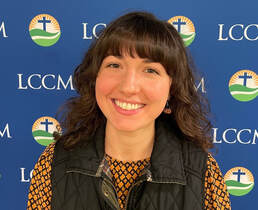 Please help us welcome our newest team member, Maria Fischer. Maria is assuming the role of nutrition program manager. In her role, Maria will work to enhance the quality of food, the types of food being distributed, and will work to bring best practices into play with our food distribution. Maria was most recently a food services director for a local school district and has her master’s degree in health nutrition with a focus in social determinates of health. Maria and her husband live in the Lebanon community, and we are excited to welcome her to the team! |
Lebanon County Christian MinistriesArchives
July 2024
Categories |
||||||||||||||||||||||
Call Us:
Email Us:



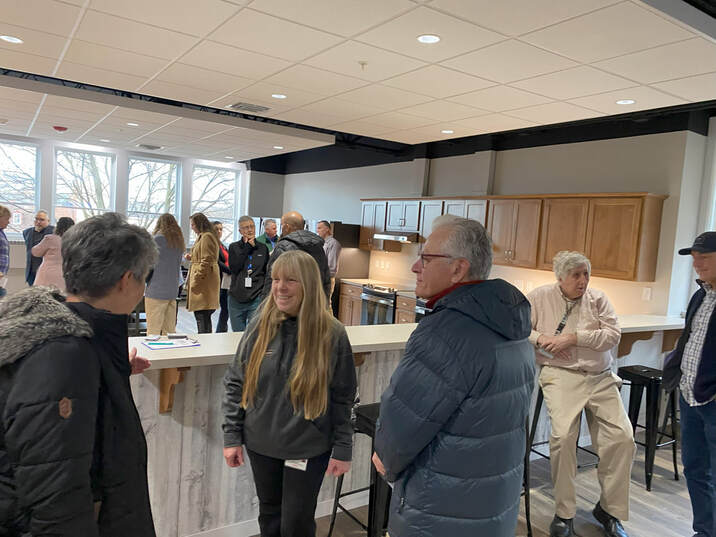
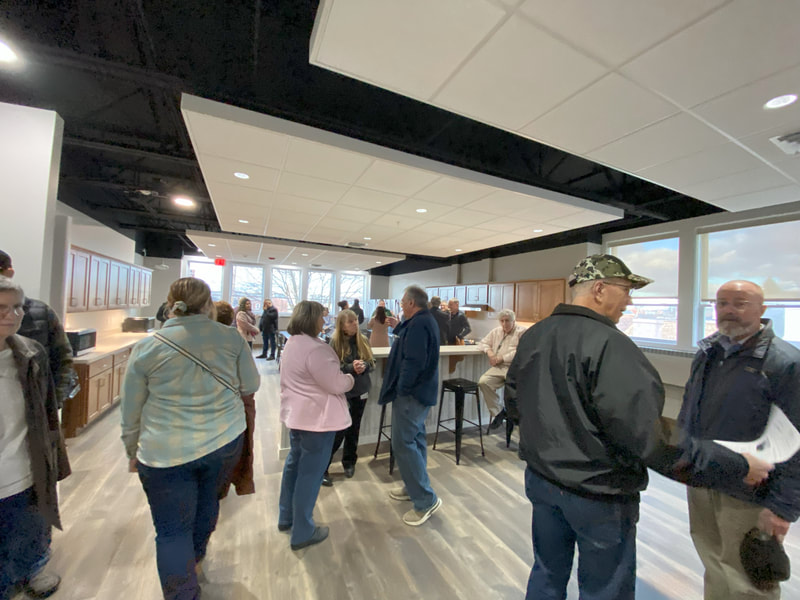
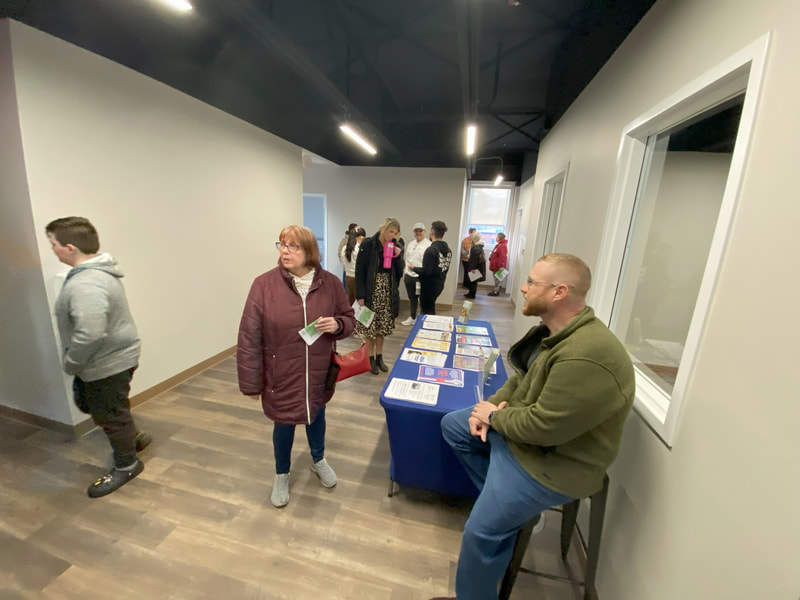
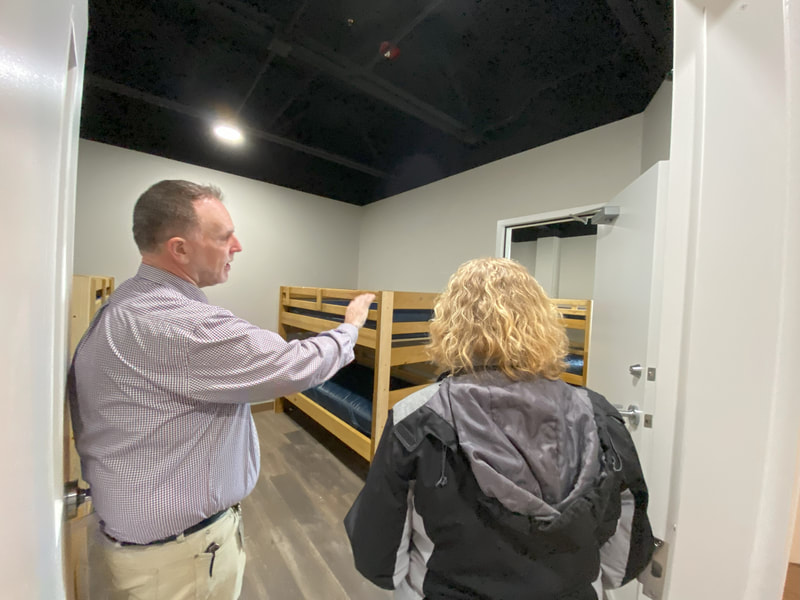

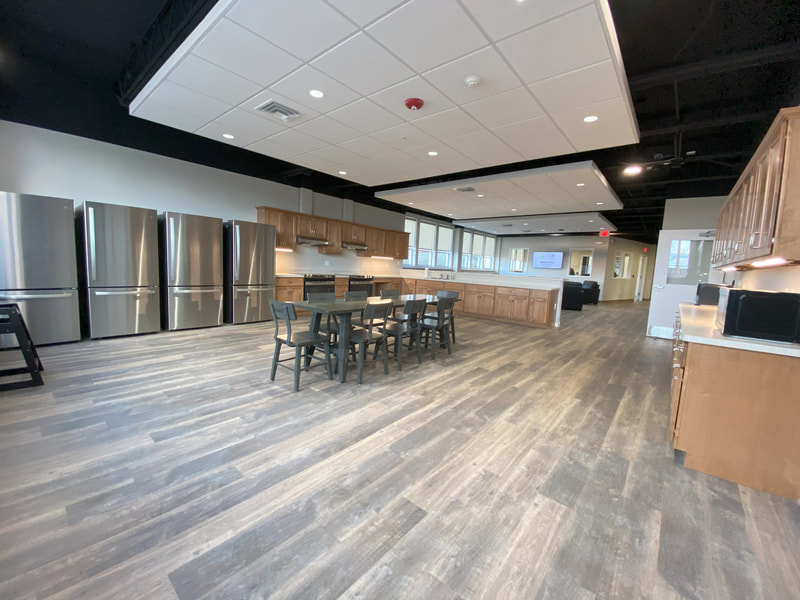
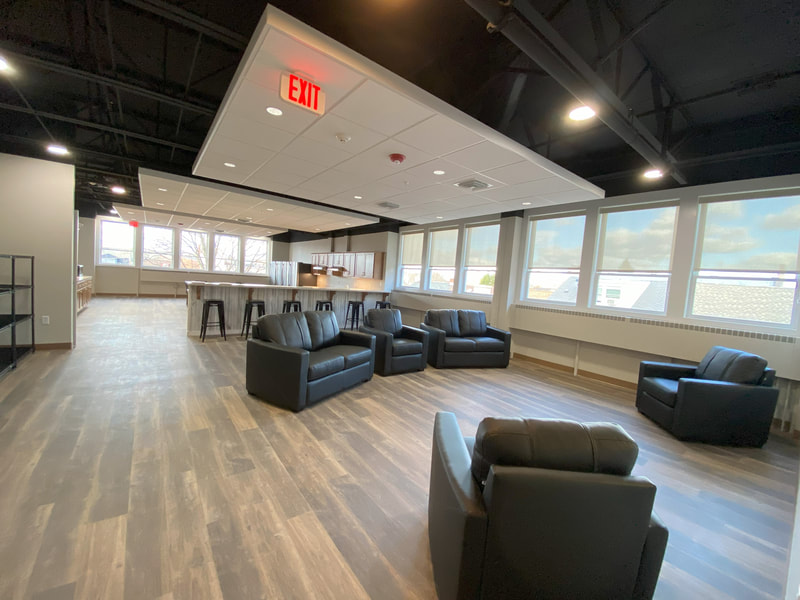
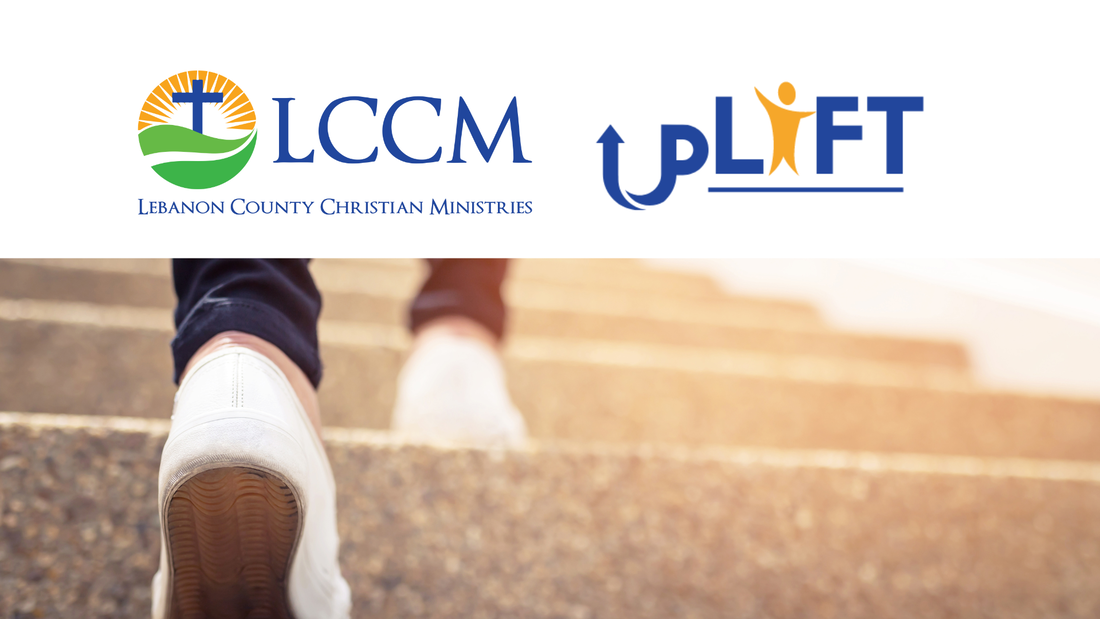


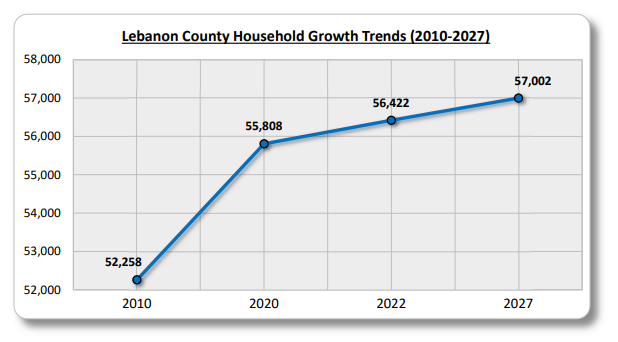

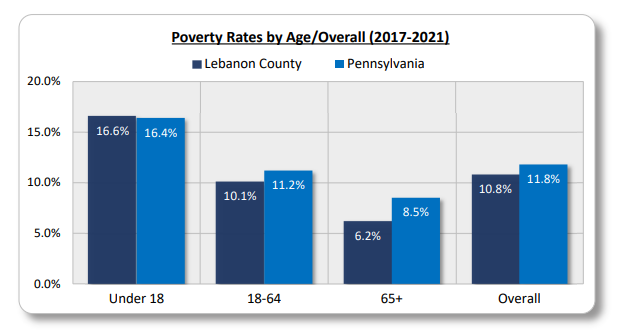
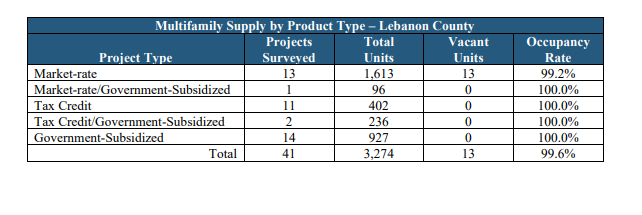
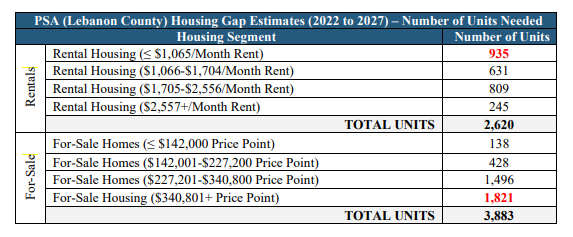
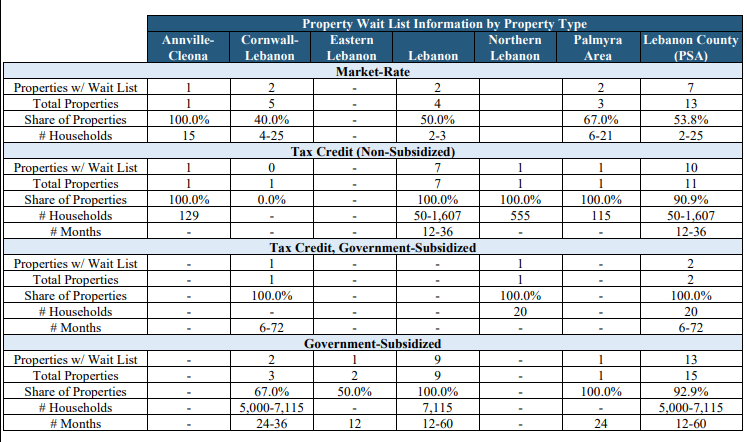

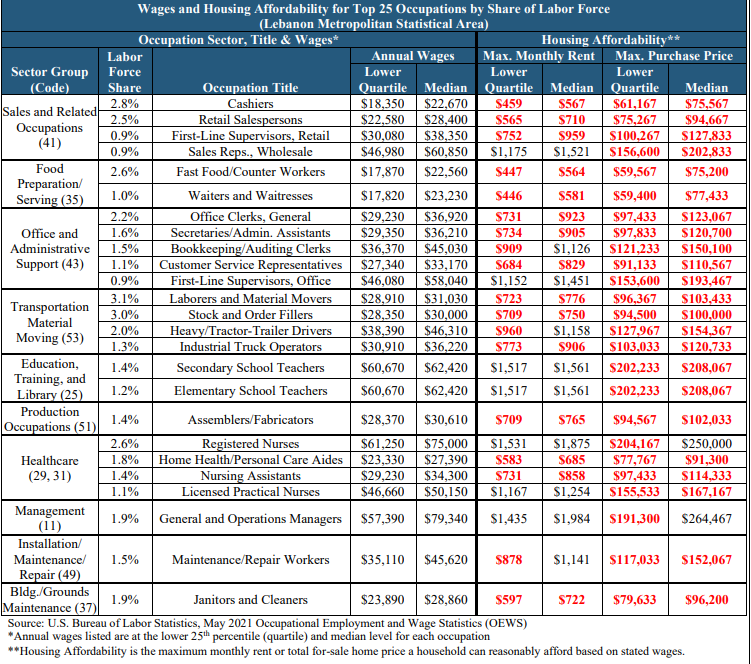
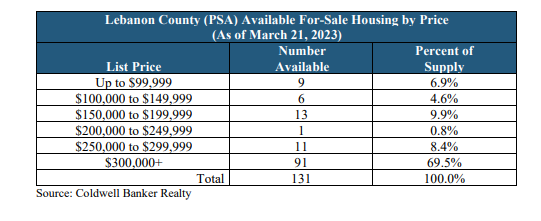
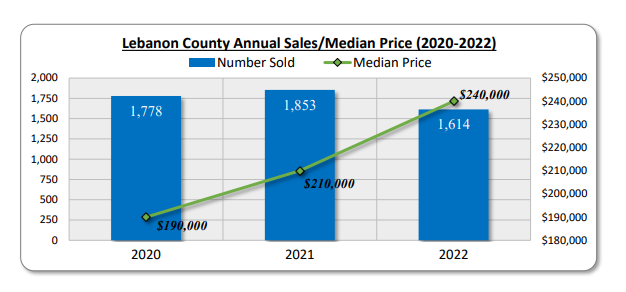

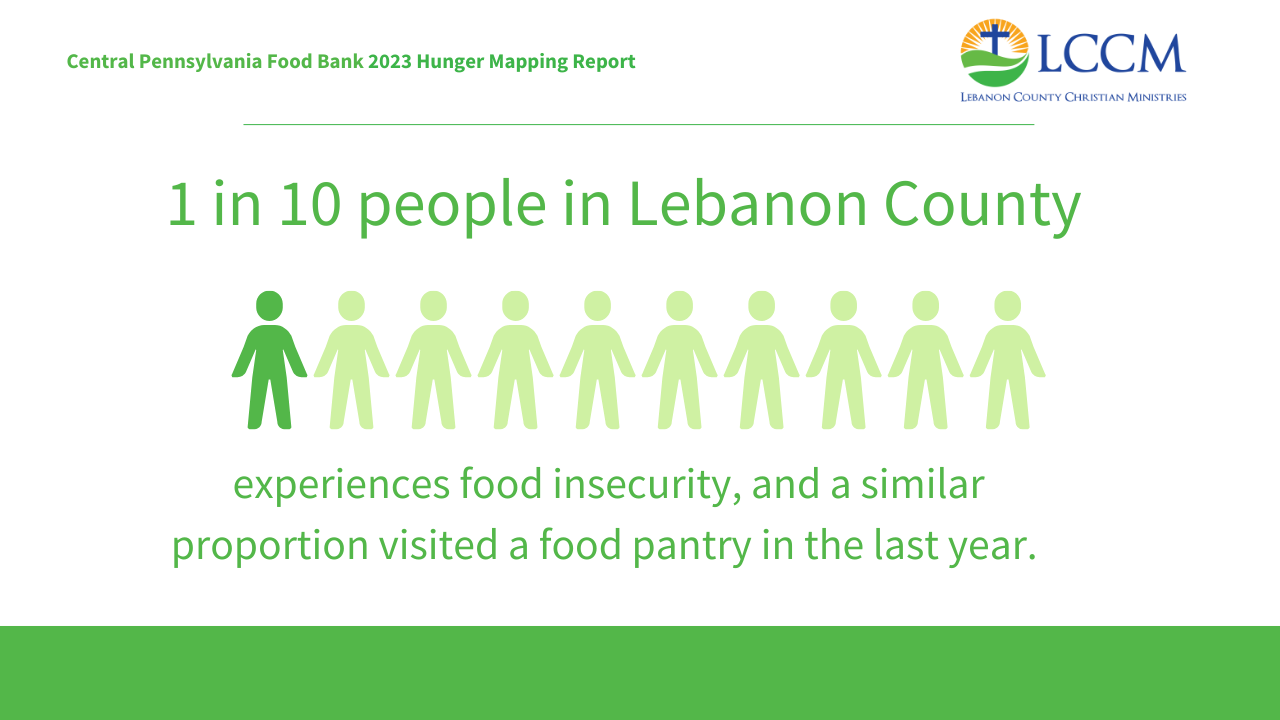
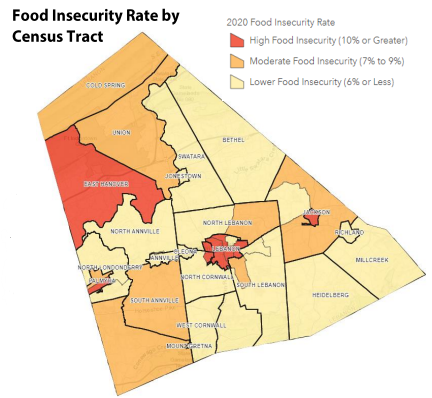
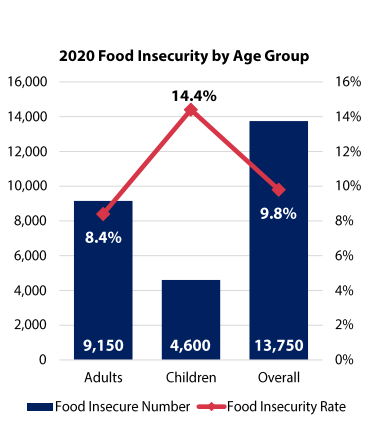
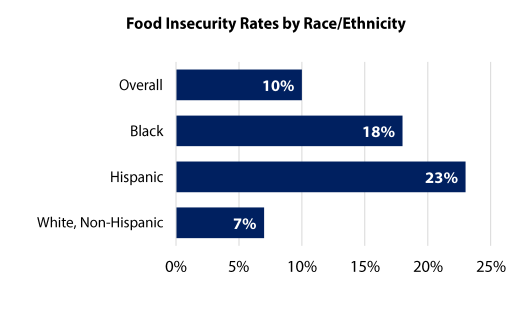
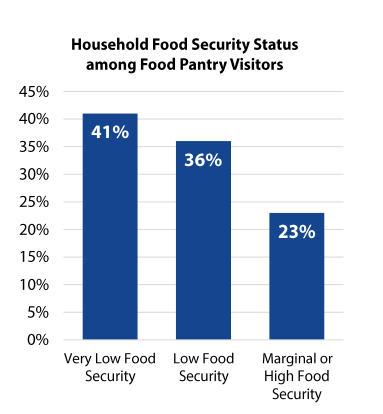
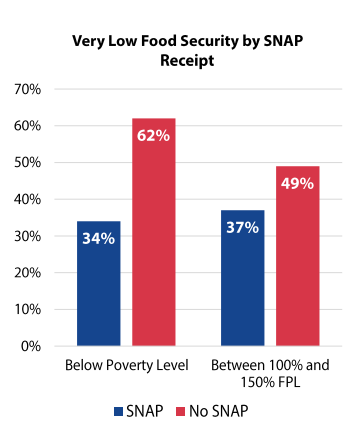
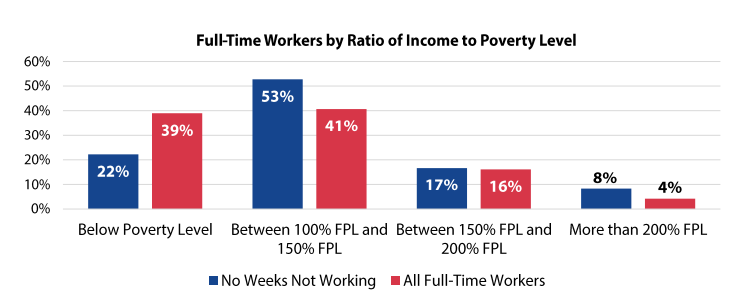
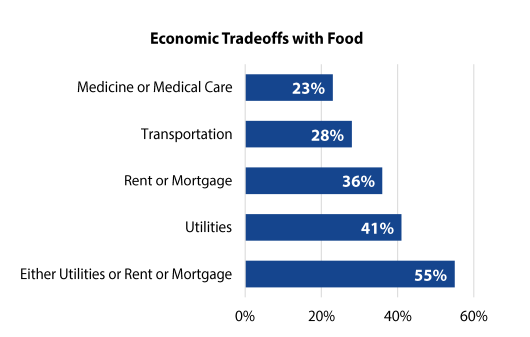
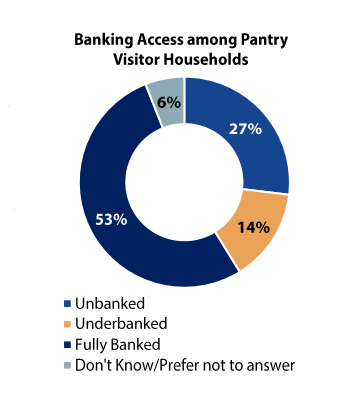
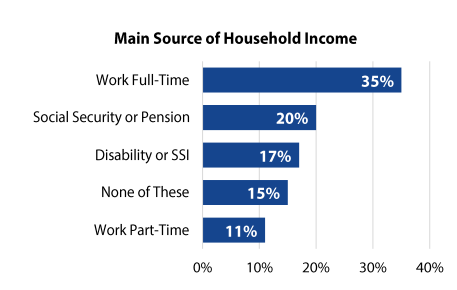
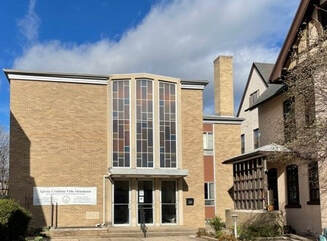


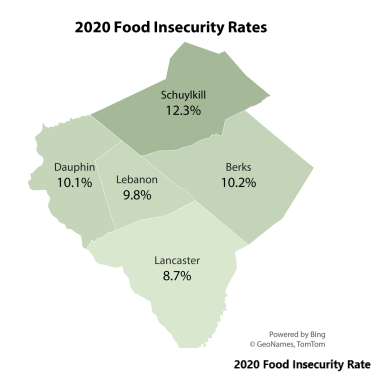
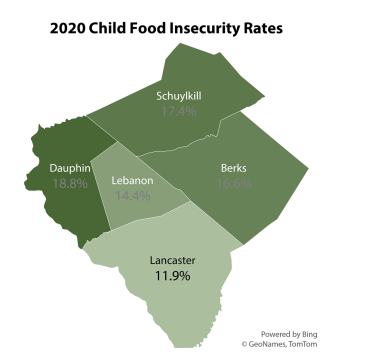
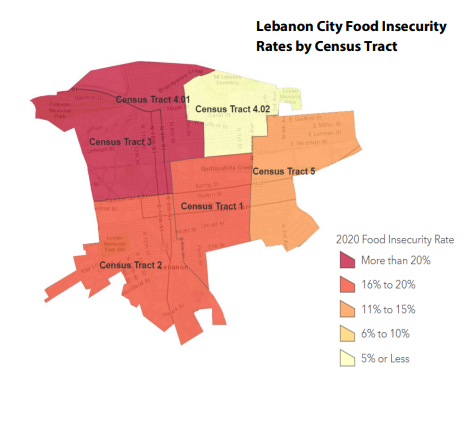
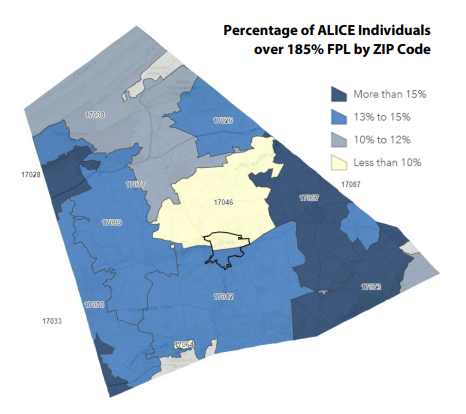
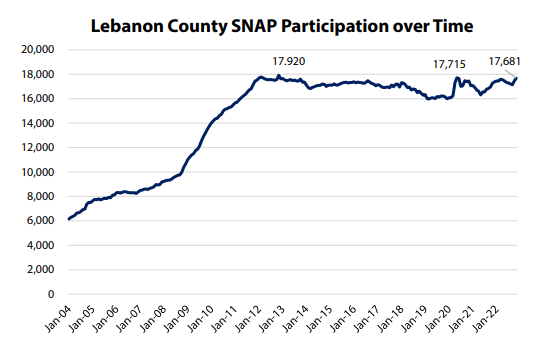
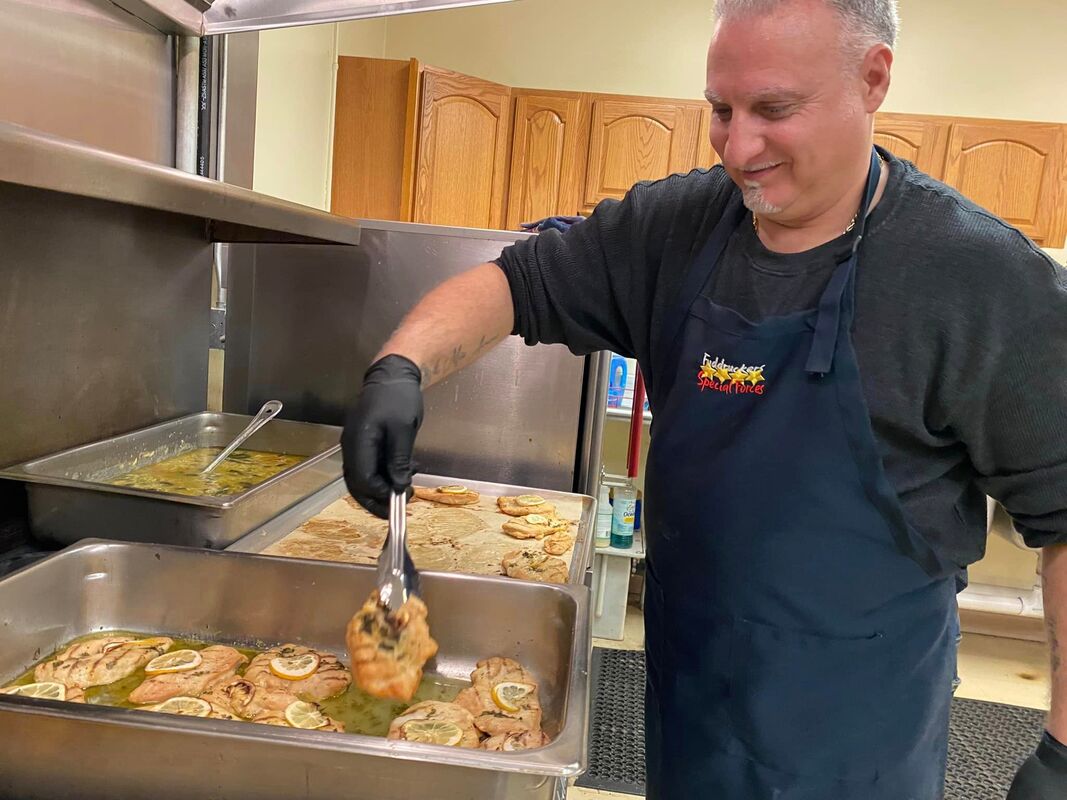
 RSS Feed
RSS Feed